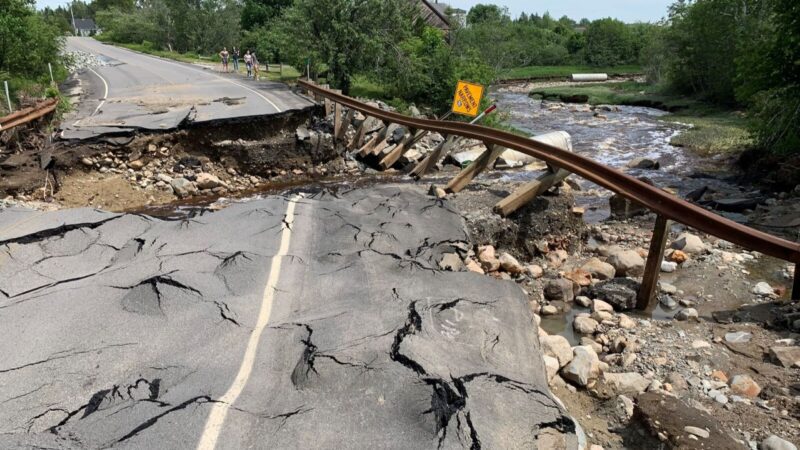Climate reparations were the hot topic at the COP 27 climate negotiations in Egypt over the last several weeks. Poorer countries want high emitting rich countries to pay for “loss and damage” due to the effects of a warming climate. Sea level rise, storms, wildfires and flooding are creating enormous costs and in some cases wiping out entire communities. As the atmosphere warms, this situation will only get worse.
But who should pay for this? Traditionally climate events are considered “Acts of God” and are cleaned up by governments, with taxpayer funds. But saying the warming climate is an “Act of God”, no longer works. That’s because we know fossil fuel companies are profiting from our addiction to oil and gas.
The situation in Egypt reminds me of a time when the Maine Governor established a “Solid Waste Taskforce”. Immediately, over 40 people volunteered to serve. This wasn’t sudden enthusiasm for community service. It was a move by stakeholders to defend their interests. Waste haulers, landfill operators, incinerator managers, municipal officials, citizen groups — everyone connected to solid waste wanted a seat at the table.
Similarly, over six hundred people from the fossil fuel industry attended COP 27, the largest number ever. And for the first time, they were allowed in the “blue zone” where negotiators were meeting. The industry argued that they are on the front lines of transitioning away from fossil fuels. This is how they managed to move from the green zone outside of the negotiations, to the blue zone inside. Hopefully the negotiators could see through their story.
Over the past thirty years, fossil fuel companies worked hard to cast doubt on climate science. They did this until extreme climate events around the globe could no longer be denied. Now they’ve switched their messaging and claim to be the change agents who will bring in the renewable age. But they continue to build new fossil fuel infrastructure at an accelerating rate, and are reaping record profits this year. Don’t be fooled.
Perhaps the fossil fuel industry sees the future and is looking to defend itself. In 2021, Shell lost a case in the Hague that blamed them squarely for climate damage. Not just damage from their own operations, but damage from products made from their oil and gas, and damage from end users who used those products — like you and I burning gas in our cars. This three phase finding against Shell sent a signal around the world. Corporate accountability is on the rise. (See here for the full story.)
Currently, there are seven states and nineteen municipalities in the US that are suing fossil fuel companies for climate damage. This I believe is the beginning of a wave — maybe a tsunami — of lawsuits. Because what city or town can afford to put in drainage systems, purchase flood buffers, or move roads and bridges? And why should they pay when they didn’t cause the problem?
Negotiators succeeded in putting “loss and damage” on the COP 27 agenda for the first time. In overtime negotiations, they created a framework for a fund that would pay less developed countries for climate damage. Work can now begin on a more specific proposal for COP 28. This is a step in the right direction.
But how would liability and cost be determined? Who should pay? And how much? These questions have not been answered. Nor have enforceable limits on fossil fuel investments or emissions been put in place. Environmentalists are rightfully frustrated.
It’s time to transition away from fossil fuels for real. Like the poorer countries, all of us should demand payment to less developed countries for climate damage. We should demand a stop to investment in new fossil fuel infrastructure. We should demand a phase down of fossil fuel emissions. And we should demand that fossil fuel companies pay their fair share.
This content is reprinted with permission from the monthly newsletter of Susan B. Inches. Receive the newsletter by signing up on her website.




